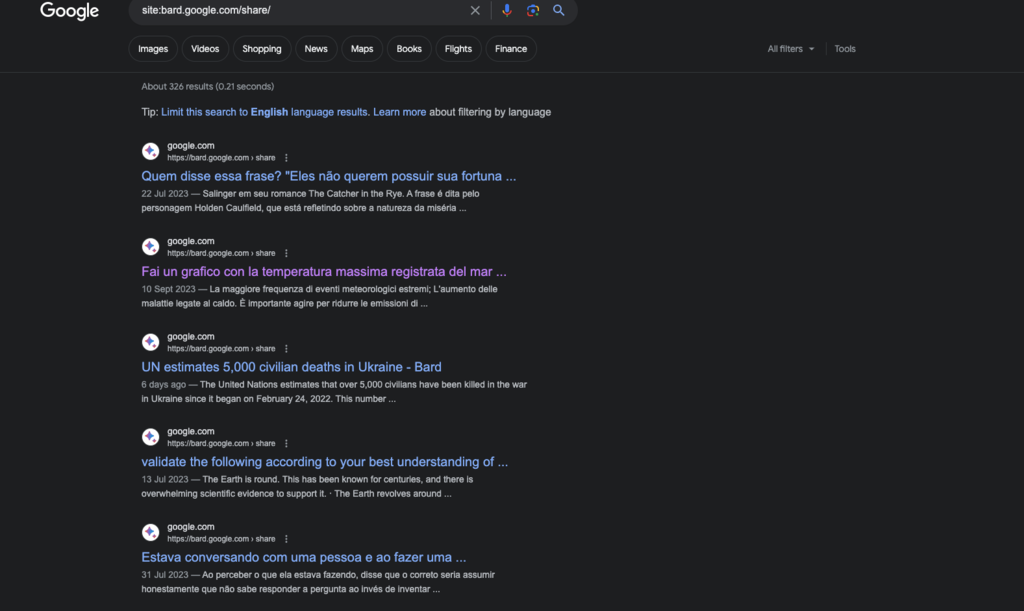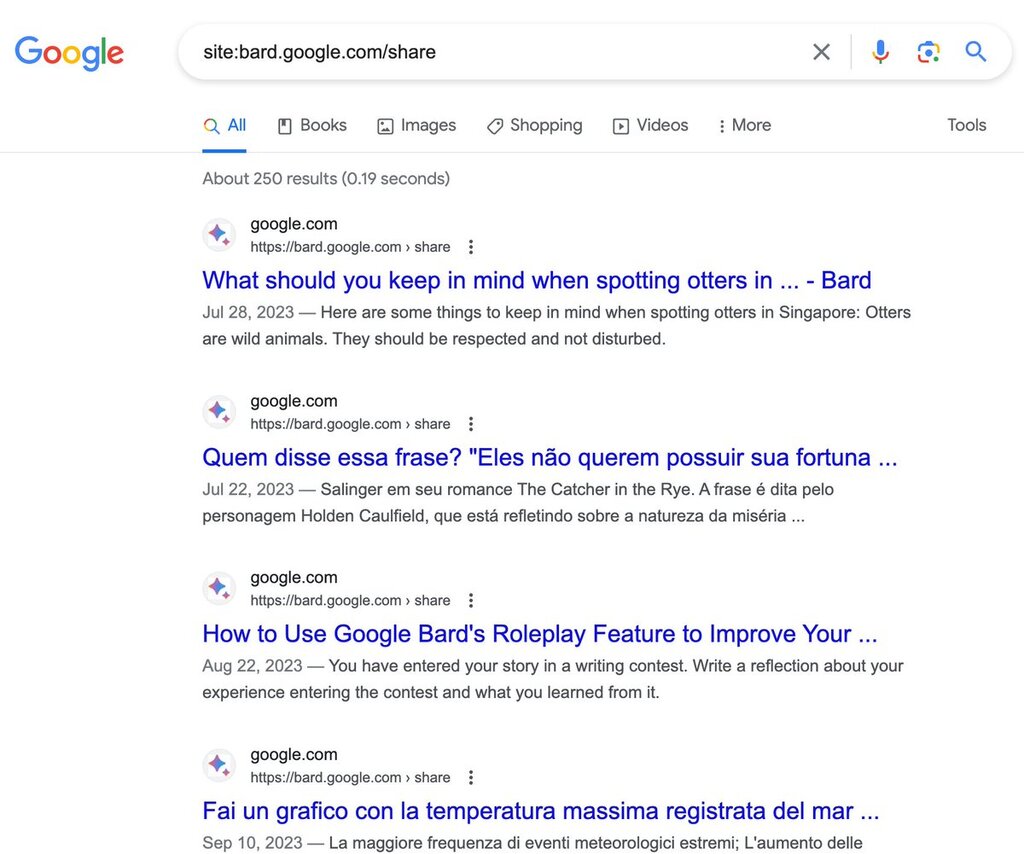In a recent revelation, Google’s chatbot, Bard, has been found to inadvertently index user conversations, making them publicly accessible via Google’s search engine. This discovery has raised concerns about user privacy and the potential exposure of personal information.
Bard, developed as a competitor to OpenAI’s ChatGPT, has been undergoing continuous upgrades since its launch. While still considered an “experiment” by Google, it has gained significant traction among users. However, this recent oversight has cast a shadow over its advancements.


Gagan Ghotra, an SEO expert, highlighted this issue on his social media account, warning users about sharing personal information with Bard. He pointed out that conversations shared by users were being indexed and could be easily accessed by anyone using Google’s search engine. Ghotra’s post included screenshots of indexed Bard conversations, further emphasizing the gravity of the situation.
Peter Liu, a researcher at Google DeepMind, clarified that only conversations users chose to share via generated links were indexed. “Your conversations are not public by default,” he added. However, an official response from a Google Search team member suggested that this was not an intended feature, and efforts were underway to block the indexing of such conversations.
It’s worth noting that while Bard’s terms of use explicitly state that anyone with the shared link can access the conversation’s content, there’s no mention of the conversations being indexed by Google.
Our investigation revealed that despite the incident occurring just a few days ago, shared Bard conversations are still accessible on Google. For instance, searching for the shared conversation link, as shown in Ghotra’s post, yields results.
This incident serves as a reminder for users to exercise caution when sharing personal information online, even with trusted platforms.
More about it:
Ainu Token aims to offer impartial and trustworthy information on cryptocurrency, finance, trading, and shares. However, we don't provide financial advice and recommend users to conduct their own studies and thorough checks.


